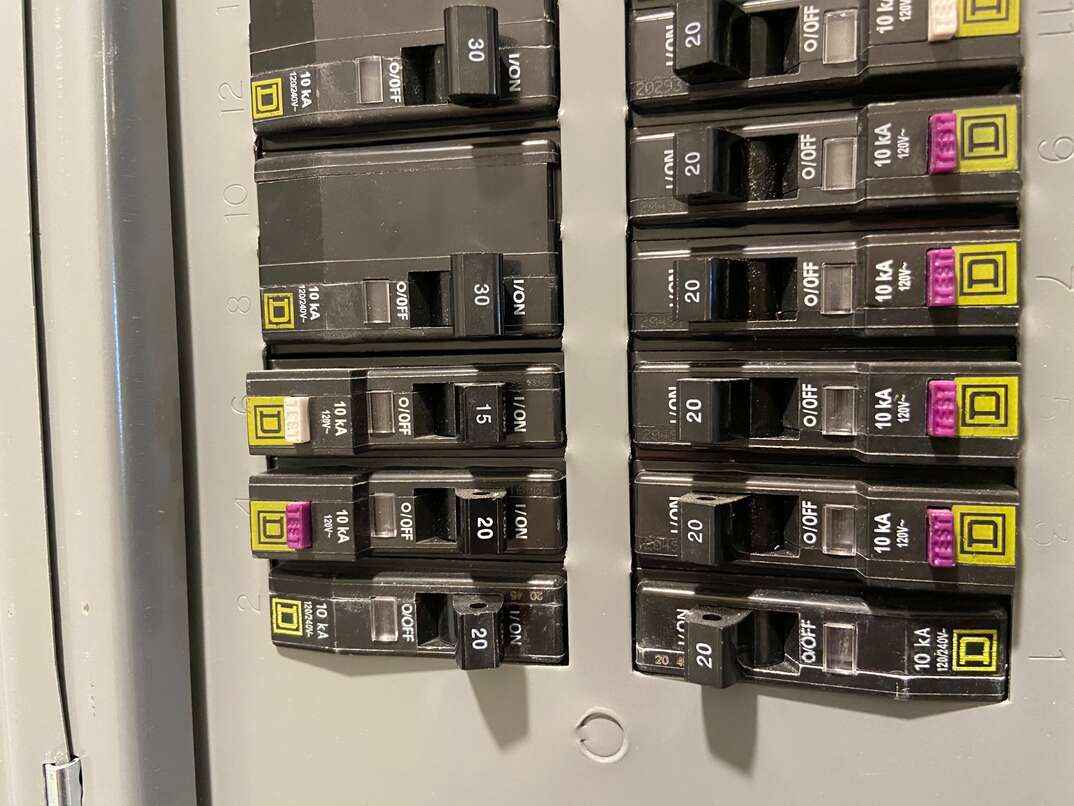Everything You Need to Know About Upgrading Your Home's Electrical Panel

With all the appliances that run in modern homes, the electrical panel is one of the most important parts of your home. Electrical panels are the connection point between the external wires that bring electricity into a building and the internal wires that deliver electricity throughout your home.
These panels tend to be long-lasting, but there are times when they should be upgraded. The homeowner owns the service panel, not the electric company. This means that you’re responsible for any issues and upgrades that are needed.
What Does It Mean to Upgrade Your Home’s Electrical Panel?
Electric panels come in different sizes that equate to how much power is provided to the home. Older homes built in the 1950s and 1960s may have a 60-amp fuse box, but 100-amp panels or larger are more common.
In most homes, an electrical panel upgrade is when a larger panel is installed. This allows more power to come into the home, letting you run more appliances safely. This is especially important for larger homes or those that run multiple electrical devices at the same time.
An upgrade to an electrical panel can also mean adding more circuit breakers to an existing box. This also allows you to run more devices. For people with old homes, an electrical panel replacement may be a better choice than an upgrade. Some older homes still have fuse boxes, which are no longer considered safe. Tearing it out and replacing it with a current model that has circuit breakers reduces the risk of fire.
There are many benefits to getting an electric panel upgrade, including:
- A safer home
- Less risk of overloaded circuits that can damage electrical equipment
- Increased home value
- Improved energy efficiency
- Reduced fire risk
- Possibly reduction in monthly insurance premiums
Electrical panels are designed to be durable and can last many decades without needing replacing. However, older panels were installed before households had multiple mobile phones, tablets, laptops and other devices charging. There were also fewer large appliances, like dishwashers and dryers.
If you’re living in an older home, an upgrade can help your electrical system cope with the different appliances and devices that are part of modern life. A panel that is broken or rusted, has burn marks or makes odd sounds is ready to upgrade. If the panel is hot to touch or emits smoke, you should call an electrician straight away.
If you’re adding an extension to your home, installing new appliances or building a shed, you may also need a more robust electrical panel to cope with increased demand. Flickering and dimming lights, power surges and tripped breakers are all signs that your current panel can’t handle the amount of power your house uses.
More Related Articles
- How Do I Tell If an Electrical Issue Is Serious?
- Can One Bad Outlet Affect Others?
- How to Reset a GFCI Outlet
- What’s in My Electrician’s Van?
- 7 Ways to Save on Your Electric Bill
How Much Does It Cost?
Costs for an electrical panel upgrade generally range from $500 to $3,000 (CAD 660 to CAD 3,960). The average cost is $1,750 (CAD 2,310). This includes materials and 8 to 10 hours of labor but not any permits or other fees. The exact cost depends on exactly what needs to be done. Relocating the panel, adding new subpanels or upgrading wires in the home increases the cost. A larger panel, such as a 400-amp rather than a 200-amp, will have higher costs for materials.
It’s important to get a professional electrician for an electrical panel upgrade. A shock from the service lugs will seriously hurt you and can be fatal. An electrician also has the expertise to ensure you get the panel upgrade you need. They will determine the size panel you need and how many circuits need to be added. In addition, they coordinate with your utility company as the power to your home needs to be turned off while the upgrade is done.
Elocal Editorial Content is for educational and entertainment purposes only. Editorial Content should not be used as a substitute for advice from a licensed professional in your state reviewing your issue. Systems, equipment, issues and circumstances vary. Follow the manufacturer's safety precautions. The opinions, beliefs and viewpoints expressed by the eLocal Editorial Team and other third-party content providers do not necessarily reflect the opinions, beliefs and viewpoints of eLocal or its affiliate companies. Use of the Blog is subject to the
Website Terms and Conditions.The eLocal Editorial Team operates independently of eLocal USA's marketing and sales decisions.



